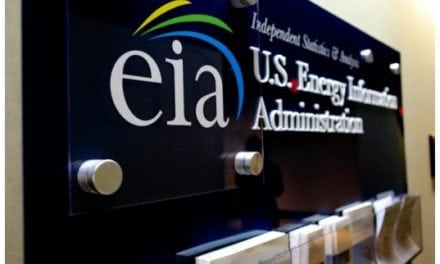By Joe Petrowski
Oil Prices have been remarkably less volatile than in the recent past, and trending lower. This is despite the tensions in the Mideast and in Ukraine. While the primary driver has been the dramatic rise in U.S. production coupled with significant demand destruction, not be overlooked has been the decrease in speculation due in part to the withdrawal of major banks from physical trading. In 2008 aggregate bank revenue from commodity trading was $14 billion. For the last 12 months it has been $3 billion.
Dodd-Frank along with Federal Reserve and accounting regulations have facilitated the exit of JP Morgan (to trade house Mercuria), Morgan Stanley (to NRG), Standard Bank (to Sino trade) and the exit of Barclay’s and Deutchebank. While Vitol, Glencore, and Cargill remain as significant international traders, the only significant trading house among the financial giants is Goldman Sachs (it should be pointed out the last pirate that was executed for piracy, “Cruel Charlie Gibbs,” was executed 150 years after the first Caribbean pirates were apprehended by authorities).
While there will always be speculation, the deflating of “herding panic” can be seen in open interest figures. While open interest in crude and product futures averaged 500 million barrels in early 2000, it peaked at over 2.8 billion barrels pre-financial crisis (6 months of actual usage), and is now again down to under 1.5 billion barrels. Average daily trade volume in futures and swap equivalents is under 250 million barrels or 12 days of usage (almost too low). While we need some speculation for liquidity and risk absorption this decrease is welcome.
Price signals from the long-dated end of the price curve do provide important information to producers and users. Spot price extremes are almost always pain for someone without gain. I have often used the analogy that speculators are like bacteria–you need some and it does provide a useful function, but too much bacteria (or speculation) and uncontrolled and misery will be the result.
Long term supply/demand fundamentals determine prices, but badly structured markets that invite speculation can distort the necessary price signals and wreck financial havoc, so this deflating of the speculative bubble is some welcomed, good news.
 Joe Petrowski has had a long career in international commodity trading, energy and retail management and public policy development. In 2005, he was named President and CEO of Gulf Oil LP and elected to the Gulf Oil LP Board of Directors. In October of 2008 he was named CEO of the now combined Gulf Oil and Cumberland Farms whose annual revenues exceed $11 billion and that now operates in 27 states. In September 2013, Petrowski stepped down as CEO of The Cumberland Gulf Group. He is now managing director of Mercantor Partners, a private equity firm investing in convenience and energy distribution.
Joe Petrowski has had a long career in international commodity trading, energy and retail management and public policy development. In 2005, he was named President and CEO of Gulf Oil LP and elected to the Gulf Oil LP Board of Directors. In October of 2008 he was named CEO of the now combined Gulf Oil and Cumberland Farms whose annual revenues exceed $11 billion and that now operates in 27 states. In September 2013, Petrowski stepped down as CEO of The Cumberland Gulf Group. He is now managing director of Mercantor Partners, a private equity firm investing in convenience and energy distribution.








